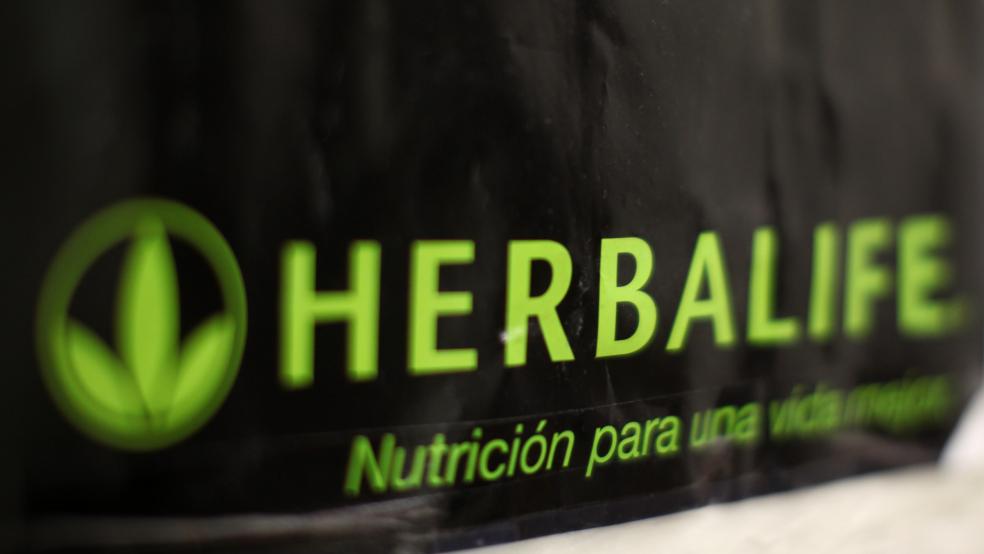Last week was a bad one for multi-level marketing companies, aka MLMs. It was a very good week for hedge fund manager Bill Ackman, who has bet more than $1 billion that one particular MLM, Herbalife (NYSE:HLF) , is no more than a pyramid scheme.
Ackman is so confident of his allegations that Herbalife is a fraud that he spent another $264,000 on lobbyists last year to make his voice heard where it may end up counting most, in Washington, D.C. Whether it was those lobbying dollars bearing fruit, or the results of a long investigation, the Federal Trade Commission has finally done what Ackman has been begging it to do for more than a year: open a formal investigation into Herbalife. It’s got the power to do that in the case of any company it thinks might being doing business in ways that are unfair or deceptive.
Ackman, for one, is clearly convinced that the FTC won’t need to do all that much digging to find plenty of evidence. But for all the hullabaloo about Ackman, the FTC’s involvement in the Herbalife saga is a sign that the MLM industry is going to come under more regulatory scrutiny. Which could end up being a good thing.
Yes, there have been successful and reputable businesses built through multi-level marketing. In other words, instead of trying to find traditional distributors to place their products in stores like Target, Wal-Mart or local bodegas, companies recruit individuals to sell to other individuals.
Think of Tupperware house parties. The success of those distributors, the Tupperware party hosts, isn’t just about their ability to sell endless quantities of plastic containers at endless house parties, but about their ability to recruit their own teams of distributors to whom they will sell the same products (at a discount) and who will go out and do the same, and so on.
In other words, it’s a pyramid. But if a pyramid business like Avon (NYSE:AVP) or Tupperware (NYSE:TUP) sells more to the public than it does to its distributors, the FTC usually doesn’t get involved.
Still, while the allure of such a business can be strong – be self employed, rewarded for the time and effort you invest and not vulnerable to the whims of a boss or of the economy – the reality too often is much less appealing.
Take the case of Mary Kay Cosmetics. According to the calculations in a Harper’s magazine cover story published two years ago, only 0.05 percent of Mary Kay consultants earn a six-figure income, while most earn about the minimum wage or don’t make money at all. They have to make up-front investments in products and keep ordering them at regular intervals in order to be eligible for bonuses, as well as trying to recruit new members.
The question becomes, just how many cosmetics (or Tupperware containers, or nutritional shakes) does any single person want? And, if each distributor is motivated not just to sell but to add more distributors, how long is it before the market is saturated?
Consider, for example, if Girl Scouts were an MLM. Their cookies would still be available only through them and not in stores (maintaining that aura of exclusivity). But they would be on sale year around, and the Girl Scouts would be aggressively recruiting you and me and everyone else as Girl Scouts to sell more cookies. It may sound impossible – those cookies are just so damn good – but the market would eventually be glutted with Samoas instead of delighting in them as a seasonal treat.
The timing of this FTC probe into Herbalife is particularly important, given the continued uncertainty about the pace of recovery in the job market. With unemployment still at 6.7 percent, and long-term unemployment continuing at elevated rates, the appeal of MLMs is likely to remain, especially when combined with slick marketing campaigns that emphasize success stories rather than the average recruit’s experience. That’s the real significance of the FTC investigation into Herbalife — not whether it vindicates Bill Ackman and turns his billion-dollar bet into a multi-billion-dollar payday.
By putting so much money on the table, though, Ackman has put the question of MLMs back in the spotlight. The FTC could determine that Herbalife isn’t a pyramid scheme – but still opt, in light of the furor, to require that companies like it disclose more information to their new recruits about success rates and costs, in much the same way that franchise businesses must do.
It’s not just the outcome of the Ackman v. Herbalife prizefight that is at stake, but the economic wellbeing of thousands of American and an entire business model.
Top Reads from The Fiscal Times:


